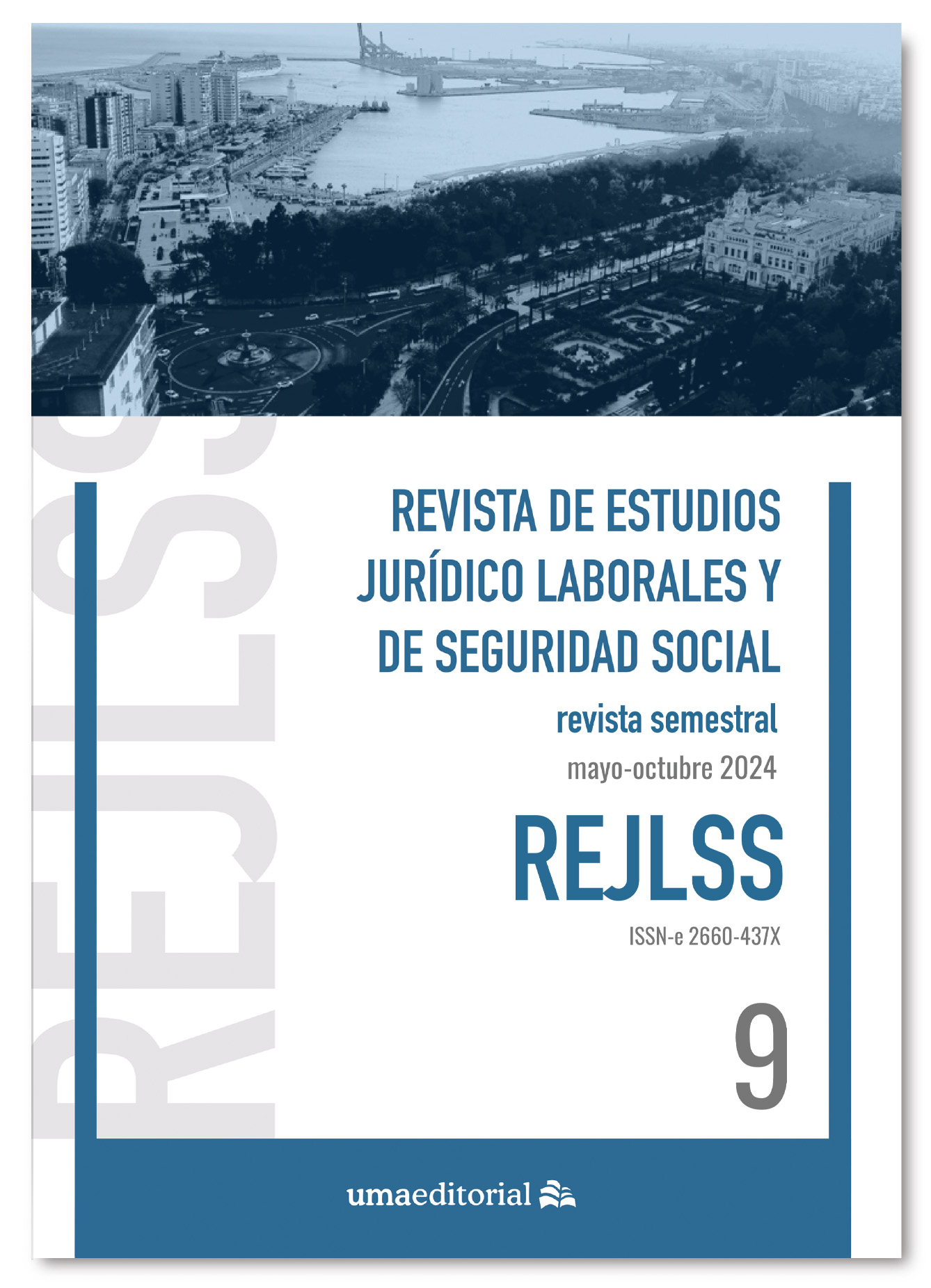Criteria for articulation and concurrence of collective agreements in Spanish legislation: a preliminary approach
DOI:
https://doi.org/10.24310/rejlss9202420463Keywords:
Collective autonomy, concurrence of collective agreements, principle of the most favorable standard, application priority, supplementarityAbstract
The relationship between collective agreements in the Spanish system of labor relations revolves around the general rule of prohibition of competition, which constitutes one of the most evident manifestations of the intervention of the legislator in the field of collective bargaining, although it is deliberately combined with the guidelines that for this purpose may come from collective autonomy, particularly through interprofessional agreements. It is a rule that has numerous reservations and that has been progressively accompanied by other legal provisions of a complementary nature, such as the one that gives preference to company agreements in certain matters or those that grant application priority to the most favorable conventional regulation in certain matters. circumstances. On balance, it could be said that the rules on the concurrence of collective agreements have contributed to outlining the structure of the Spanish collective bargaining system, at the same time that they have complicated and to a certain extent obscured the criteria for determining and selecting the applicable agreement.
Downloads
Metrics
Publication Facts
Reviewer profiles N/A
Author statements
Indexed in
-
—
- Academic society
- N/A
- Publisher
- Universidad de Málaga. UMA Editorial
Downloads
Published
How to Cite
Issue
Section
License
Copyright (c) 2024 Joaquín García Murcia

This work is licensed under a Creative Commons Attribution-NonCommercial-NoDerivatives 4.0 International License.
In the Revista de Estudios Juridico Laborales y de Seguridad Social (REJLSS) we are clearly committed to a policy of open access to scientific knowledge (See Berlin Declaration).
Those authors who have publications with this journal accept the following terms:
This journal provides immediate free access to its content under the principle of making research freely available to the public. All the contents published in the REJLSS are subject to the Creative Commons license
Attribution-NonCommercial-NoDerivatives 4.0 International (CC BY-NC-ND 4.0)
Copyrights are of two kinds: moral and patrimonial. Moral rights are perpetual, inalienable, non-transferable, inalienable, unattachable and imprescriptible prerogatives. In accordance with Spanish copyright legislation, the authors who publish in REJLSS retain the moral right over their work, as well as the ownership of the patrimonial right, which will be transferred to the University of Malaga for its dissemination in open access.
The patrimonial rights, refer to the benefits that are obtained by the use or disclosure of the works. REJLSS is published in open access and is exclusively authorized to perform or authorize by any means the use, distribution, dissemination, reproduction, adaptation, translation or transformation of the work.
It is the responsibility of the authors to obtain the necessary permissions of the images that are subject to copyright.
Authors whose contributions are accepted for publication in this journal retain the non-exclusive right to use their contributions for academic, research and educational purposes, including self-archiving or depositing in open access repositories of any kind.
The electronic edition of this magazine is edited by the Editorial of the University of Malaga (UmaEditorial), being necessary to cite the origin in any partial or total reproduction.
The authors may adopt other non-exclusive license agreements for the distribution of the version of the published work (eg: deposit it in an institutional telematic archive or publish it in a monographic volume) provided that the initial publication is indicated in this magazine.
Authors are allowed and recommended to disseminate their work through the Internet (eg, in institutional telematic archives or on their website) before and during the submission process, which can produce interesting exchanges and increase citations of the published work.







19.png)
